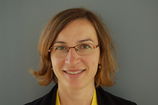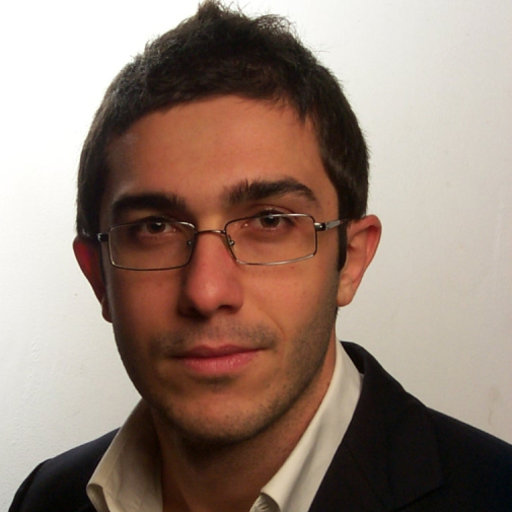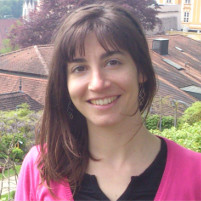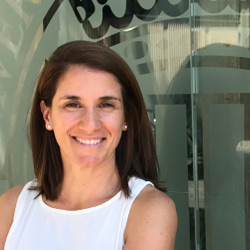
BP-Meet-IoT
5th International Workshop on BP-Meet-IoT
(affiliated with BPM 2021)
The Business Process Management (BPM) discipline, as it is known today, emerged as the result of significant advances experienced since mid-1990s in business methods, tools, standards, and technology. Since then, this discipline has significantly evolved but mainly focused on the business domain with the objective of helping organizations to achieve their goals. However, the arrival of the Internet of Things (IoT) has put into play a huge amount of interconnected and embedded computing devices with sensing and actuating capabilities that are revolutionizing our way of living. The incorporation of this technology into the BPM field will allow the development of business process with higher levels of flexibility, efficiency, and responsiveness, providing as a result a better support to the evolving business requirements. In addition, the proper combination of these two fields can foster the development of innovative solutions not only in the business domain where the BPM emerged, but also in many different application areas in which the IoT can be applied (e.g., smart cities, smart agriculture, or e-health).
While the incorporation of IoT technology into the BPM field has plenty of potentials, it also imposes a set of challenges that need to be addressed. In particular, research is necessary for addressing questions such as:
- Which is the impact of introducing IoT technology into the BPM lifecycle?
- How the top-down and bottom-up paradigms in which BPM and IoT rely respectively can coexist and benefit each other when merged?
- How to bridge the abstraction gap between low-level (sensor data) and high-level events?
- How BPM will deal with the changing nature imposed by IoT technology?
- How real-time communication and collaboration required in IoT systems will be supported by BPM?
- How to consider privacy aspects into data captured by IoT devices and analyzed with BPM?
The objective of this workshop is twofold. On the one hand we want to attract novel research at the intersection of these two areas by bringing together practitioners and researchers from both communities that are interested in making IoT-based business processes a reality. BP-Meet-IoT will discuss the current state of ongoing research, industry needs, future trends, and practical experiences. The topics of the workshop include, but are not limited to:
- Modeling IoT-aware business processes
- Dealing with context in IoT-aware business processes
- Privacy and security in IoT-aware business processes
- Connection of analytical processes with IoT
- Dealing with unstructured environments
- Specifying the autonomy level of IoT things
- Improving resource monitoring and quality of task execution
- IoT and ubiquitous technologies supporting BPM
- Sensor-based task management in BPM
- Business examples of IoT technologies applied to ubiquitous BPs
- IoT log preprocessing techniques
On the other hand, we want to foster also a more practical-point-of-view solutions provided for real scenarios. For this purpose, we propose also to raise two challenges, namely an IoT-aware BP modelling challenge and an IoT process mining challenge.
- The IoT-aware BP modelling will consist of exploring solutions in which different modeling approaches are challenged with respect to the degree in which IoT is included in the modeling practice and language as “first class” citizens. Based on a given scenario (heavily based on IoT tasks and sensing/actuation, e.g., smart manufacturing processes), participants will be asked to propose and/or reuse existing modeling approaches and to demonstrate their effectiveness. An expert jury will select the best three modelling techniques (out of the submitted ones), which then will be evaluated by the audience.
- The IoT process mining challenge provides participants with a sensor event log of a smart environment (e.g., home, office, factory, retail store, warehouse, etc.) containing various contextual attributes (e.g., timestamp, sensorID, sensorType, sensorLocation, and value). The challenge requires to analyze these data, using whatever techniques available, in order to find processes of the inhabitants/workers in the environment. An expert jury will select the best three techniques (out of the submitted ones), which then will be evaluated by the audience.
For both challenges, we strongly encourage to use any available tool, technique, or method. Participants to the challenge will have to present a paper describing their solution and to present it during the workshop.
Manifesto
Some of the topics pointed out in this workshop have been already discussed in the manifesto entitled "The Internet-of-Things Meets Business Process Management: Mutual Benefits and Challenges”. This manifesto has been published by the organizers of this workshop together with the growing up BPM-IoT community as a result from the "Fresh Approaches to Business Process Modeling"(16191) seminar held in Dagstuhl in May 2016.
Program
This year BP-meet-IoT 2021 will be held in mixed mode, where we will have phisical and online participants. The agenda workshop will be the following:
| 16:30-17:00 |
A Context and Augmented Reality BPMN and BPMS Extension for Industrial Internet of Things Processes. Paper by Gregor Grambow, Daniel Hieber, Roy Oberhauser and Camil Pogolski. |
| 17:00-17:30 | Supporting Users in the Continuous Evolution of Automated Routines in their Smart Spaces. Paper by Estefanía Serral, Daniel Schuster and Yannis Bertrand. |
| 17:30-18:00 | Aggregating Sensor Measurements for IoT Process Mining: The Benefits on Discovering Accurate and Understandable Models of Human Habits. Paper by Massimiliano de Leoni and Lucia Pellattiero. |
Important Dates
Submissions & Registration
Manuscripts (research and industrial papers) submission
Manuscripts should be no longer than 12 pages including references, figures and tables and must be formatted in accordance with the LNCS/LNBIP format specified by Springer (available for both LaTeX and MS Word).
The title page must contain a short abstract and a short list of keywords. Papers should be submitted electronically through easychair by selecting the 5th International Workshop on Business Processes Meet the Internet-of Things track.
Relevant members of the international community working on IoT and BPM topics will review all submissions. Each paper will be reviewed by 3 PC members in order to guarantee that only high-quality papers are accepted. All the workshop papers will be published by Springer as a post-proceeding volume (to be sent around 4 months after the workshop) in their Lecture Notes in Business Information Processing (LNBIP) series.
It is mandatory that at least one author will register and present the paper during the workshop.
Reports for the BP-meets-IoT Challenge
The submitted reports are judged on their level of professionalism and originality of the results. The participants are expected to report on a broad range of aspects. The reports will be judged on their completeness of analysis and usefulness for the purpose of a real-life smart environment. Submissions should be made through EasyChair at https://easychair.org/conferences/?conf=bpm2021 where you indicate your submission to be a BP-Meet-IoT submission. A submission should contain a pdf report of at most 25 pages, including figures, using the LNCS/LNBIP format specified by Springer (available for both LaTeX and MS Word). The title should clearly mention the submission is for the Challenge. Appendices may be included, but should only support the main text. All reports submitted should be presented at the workshop (having a registered participant) through a poster. The committee will review the report and select the three best ones to have a presentation of their approach and answer the audience questions in a specific session of the workshop. On the basis of the committee reviews and the opinion of the workshop audience, the winner will be selected.
The best papers in the workshop will be invited to a special version of Enterprise Modelling and Information Systems Architectures (EMISAJ) – International Journal of Conceptual Modelling.
Participating in the BP-Meets-IoT Challenge
The 5th edition of the BP-Meets-IoT Workshop launches a challenge aiming at exploring the interplay between the Internet of Things (IoT) and process mining. This year's challenge focuses on smart environments. It provides participants with a realistic set of logs of a smart home and challenges them to analyze these logs focusing on extracting habits and other unique insights on the personal process(es) of the home inhabitants. Please, download here the complete description of datasets.
The challenge provides a set of datasets that describe habits, activities and actions performed by humans inside a physical environment, together with the sensor measurements detected. These dataset are organized according to three different scenarios which cover three consecutive weeks, starting on a Monday and concluding on a Sunday.
We strongly encourage participants to use any tools, techniques, methods at their disposal. There is no need to restrict to open-source tools; proprietary tools as well as techniques developed or implemented specifically for this challenge are also welcome.
The challenge is quite open. The main question to be answered is whether there is a collection of process models which together properly describe the habits of the inhabitants. Any collection of models that together explain the habits of all the inhabitants is appreciated. In addition, details on the habits and inhabitants which can be derived from the dataset, for each of the three scenarios, contribute to the completeness of the answer.
Any participant team can apply to the challenge, including Bachelor, Master and PhD students, as well as academics and professionals, also in teams (of any composition) to show their skills in analyzing habits and demonstrating how process mining can be applied in smart environments.
Program Committee (TBC)
- Andrea Marrella, Sapienza Università di Roma, Italy
- Zakaria Maamar, Zayed University, Dubai, UAE
- Vicente Pelechano, Universitat Politècnica de València, Spain
- Manfred Reichert, University of Ulm, Germany
- Andreas Oberweis, Karlsruhe Institute of Technology, Germany
- Matthias Weidlich, Humboldt-Universität zu Berlin, Germany
- Pnina Soffer, University of Haifa, Israel
- Felix Mannhardt, SINTEF Digital, Norway
- Udo Kannengießer, Compunity GmbH, Germany
- Mathias Weske, Hasso-Plattner-Institut at the University of Potsdam, Germany
- Sylvain Cherrier, University Marne-la-Vallée, France
- Jianwen Su, University of California at Santa Barbara, USA
- Christian Janiesch, University of Wurzburg, Germany


